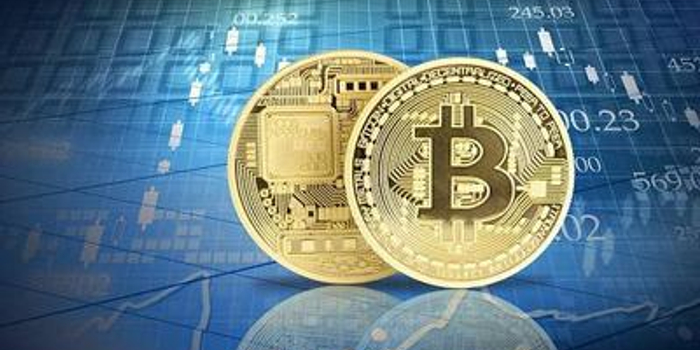|
|
Okay, so I need to figure out what PepsiCo's tokenized stock is. Let me start by breaking down the terms here. Tokenized stock refers to shares that are represented as digital tokens on a blockchain, right? That means instead of physical stock certificates, investors hold tokens that represent ownership in the company.
First, I should recall what blockchain is. It's a decentralized ledger technology that's secure and transparent. Tokenization could make stock ownership more accessible because tokens can be traded digitally without intermediaries. But how does this apply to PepsiCo specifically?
I remember that some companies have started exploring tokenization, but I'm not sure if PepsiCo has done this yet. Maybe they have a pilot project or are in the early stages. I should check recent news or PepsiCo's official announcements. If they haven't done it yet, maybe a third-party platform is offering tokenized shares of PepsiCo.
Another angle is the benefits of tokenized stock. Lower transaction costs, easier fractional ownership, global accessibility, and maybe increased liquidity. But there are risks too, like regulatory issues, security concerns with blockchain, and market volatility.
Wait, there's also the aspect of how these tokens are issued. Are they on a public blockchain like Ethereum, or a private one? Public blockchains offer more transparency but might have higher fees. Private blockchains are more controlled but less transparent.
I should also consider the current state of tokenization in the stock market. Companies like Tesla and Ford have explored tokenization, but it's not widespread yet. Regulatory approval is a big hurdle. In the US, the SEC is cautious about tokenized securities. Maybe PepsiCo would need to comply with SEC regulations if they tokenize their stock.
Another thought: tokenization might not replace traditional stock but could offer alternative investment opportunities. For example, through platforms that tokenize large-cap stocks like PepsiCo for easier trading. I should look up if there are any such platforms offering PepsiCo tokens.
Also, the process of tokenizing stock involves converting physical shares into digital tokens. This would require a security token offering (STO), which is a regulated process. So PepsiCo would need to go through an STO, possibly through a platform that specializes in this.
Potential challenges include the technical side of blockchain integration, ensuring compliance with financial regulations, and educating investors about the new asset class. There's also the risk of market adoption—if investors don't trust or understand the tokens, it might not take off.
I should also mention examples. For instance, companies like Uniswap have tokenized stocks, but they're usually smaller or in specific regions. PepsiCo, being a large company, would be a more significant case if they tokenize.
In summary, tokenized stock for PepsiCo would involve representing their shares as digital tokens on a blockchain, offering benefits like lower costs and easier trading but facing challenges like regulatory hurdles and market adoption. If PepsiCo hasn't done this yet, third-party platforms might be the ones offering tokenized versions, subject to their own regulations.
PepsiCo's tokenized stock refers to the potential representation of its shares as digital tokens on a blockchain, enabling more efficient trading and fractional ownership. Here's a structured overview:
Key Concepts:
Tokenization: Converting physical shares into digital tokens on a blockchain, enhancing accessibility, transparency, and liquidity.
Blockchain Platforms: Could be public (e.g., Ethereum) or private, with trade-offs between transparency and control.
Benefits:
Cost Efficiency: Reduced transaction and custodial fees.
Fractional Ownership: Enables smaller investments in large companies like PepsiCo.
Global Accessibility: Overcoming geographical barriers in trading.
Liquidity: Faster and easier secondary market trading.
Challenges:
Regulatory Compliance: Requires adherence to securities laws (e.g., SEC regulations in the U.S.). Security Token Offerings (STOs) are heavily regulated.
Security Risks: Potential for blockchain vulnerabilities or cyberattacks.
Market Adoption: Investors must trust and understand the new asset class.
Current State:
PepsiCo's Status: As of now, PepsiCo hasn't officially launched tokenized stock. Tokenization of large-cap stocks remains exploratory, with pilot projects in specific regions or sectors.
Third-Party Platforms: Some platforms (e.g., Uniswap, Securitize) tokenize stocks, but PepsiCo-specific tokens would depend on regulatory approvals and partnerships.
Process for Tokenization:
Security Token Offering (STO): PepsiCo would issue tokens through an STO, complying with regulatory frameworks.
Blockchain Integration: Shares would be converted into tokens, managed via smart contracts for automatic compliance.
Liquidity Management: Tokens could be listed on exchanges for trading.
Risks and Considerations:
Regulatory Hurdles: SEC scrutiny and global regulatory alignment are critical.
Volatility: Tokenized stocks might mirror traditional stock price movements, adding risk.
Education: Investors need clear guidance on tokenized assets.
Conclusion:

While tokenized stock for PepsiCo is theoretically feasible and offers modern investment benefits, significant regulatory and market adoption barriers remain. Third-party platforms may explore tokenizing PepsiCo shares if regulatory landscapes evolve favorably. Investors should stay informed on PepsiCo's official initiatives and regulatory developments in the space.
|
|